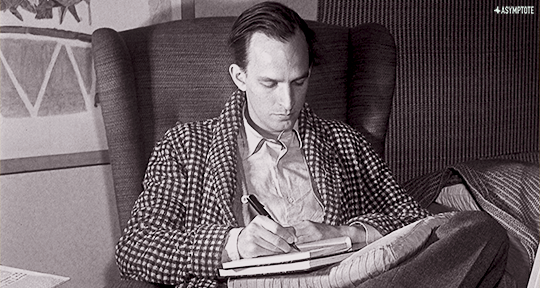One is used to seeing adaptations from the page to the screen, yet there is a less common phenomenon that seems to operate in the opposite direction: film directors who later go on to explore the realm of letters. In this essay, Iona Tait looks at the works of two notable filmmakers and their written works, tracing the discernible ideas that flow from image to text.
After a life of working with the screen, a particular type of filmmaker has historically turned to writing fiction. Last year, at the age of seventy-nine, Michael Mann published his first novel: a prequel and sequel based on his 1995 film, Heat. Quentin Tarantino announced in 2009 that he would retire from cinema once he had made ten features, to “write novels and write cinema literature, and stuff like that.” Ingmar Bergman wrote an autobiography and three novels in quick succession after he had ostensibly bid farewell to cinema with his 1982 film, Fanny and Alexander. And in 2021, the debut novel of then-seventy-nine-year-old Werner Herzog was published in German—with its English translation following one year later. While some filmmakers have forayed into novelistic ventures earlier in life, a pattern nonetheless seems to emerge, and the latecomers’ attempts are often viewed with suspicion. Similar to Bergman’s confession that he wants to “go down with flag flying high,” Tarantino has been lambasted for displaying the narcissistic urge to not have a “late career”—and this seemingly selfish desire has been set against the more generous, total embrace of cinema endorsed by Martin Scorsese, who had admitted before the release of his twenty-seventh feature that he “want[s] to tell stories, and there’s no more time.” Since writing a book grants the creative agent more autonomy, such endeavors by famed directors might appear at first as nothing but an alternative expression of megalomania.
The theory of the director as a controlling agent harkens back to the auteur theory. Established by the film theorist André Bazin in 1951, the concept of the auteur filmmaker likened the filmmaker to the author, describing both as being completely in charge of the creative process; in doing so, the theory upheld a hierarchy of the arts in which the written word triumphed. Whilst critics have challenged whether the auteur theory is convincing in light of the creative roles played by cinematographers, producers, editors, and actors, many filmmakers have indeed been characterized, by others as well as themselves, as controlling agents. In a 1983 interview, Bergman admitted he was “authoritarian by nature,” adding that his “democratic qualities aren’t that well developed, due in large part to my profession.” Herzog’s unrelenting vision, often to the detriment of his crew and actors, has been recorded most notoriously in Les Blank’s documentary, Burden of Dreams, on the making of Fitzcarraldo. In addition to dominion, the theory also postulates that the filmmaker can resemble the author in other ways, such as in maintaining a coherent style and theme across their body of work.

